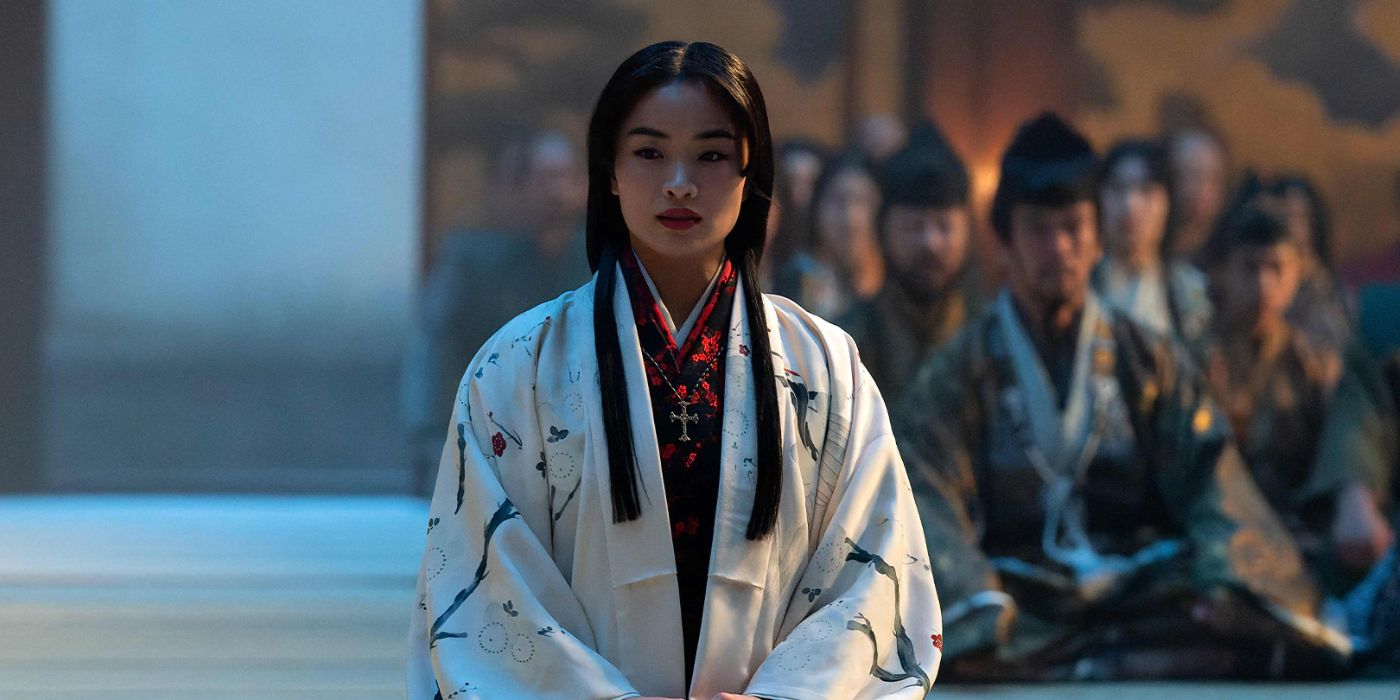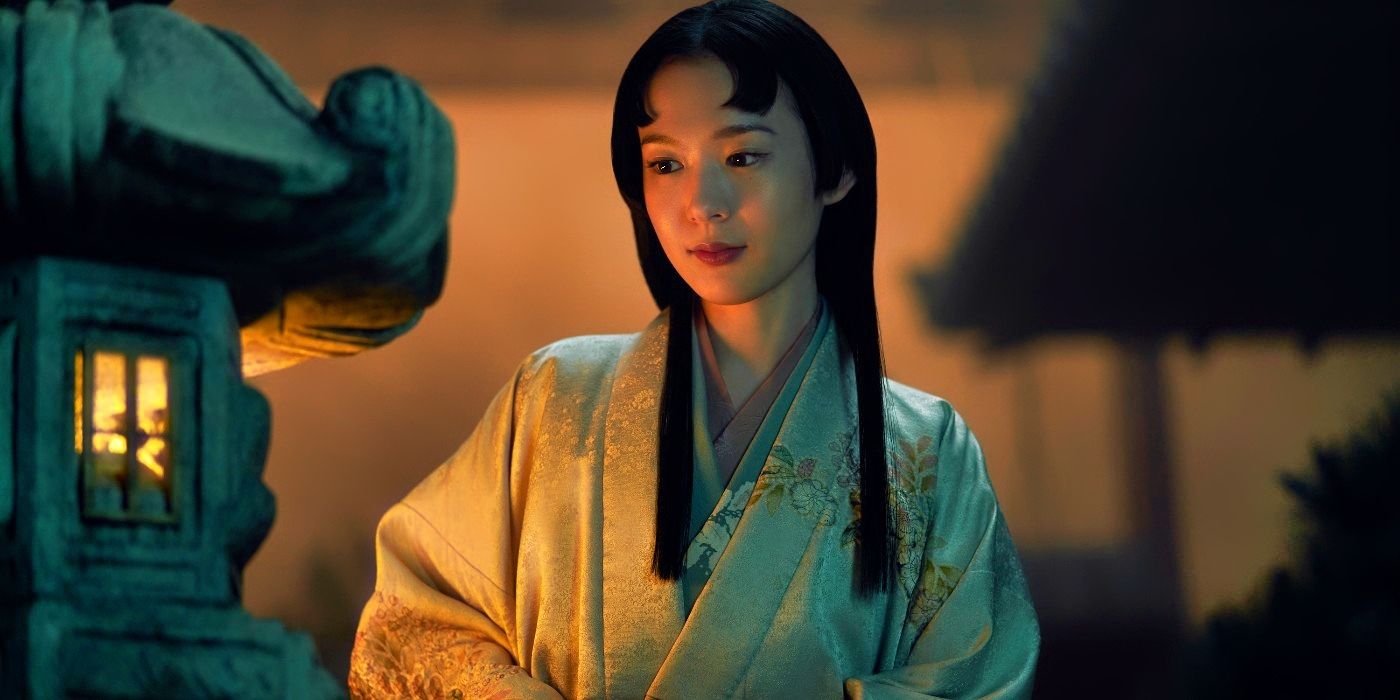Summary
In a storyinspired by a historical civil war, there are few heroes.
If you askthe originalShogunminiseries,the answer is undoubtedly John Blackthorne(Richard Chamberlain).
FX’s adaptation, viaJustin MarksandRachel Kondo, blurs lines for the better.

When a mysterious European ship is found marooned in a nearby fishing village, Lord Yoshii Toranaga discovers secrets that could tip the scales of power and devastate his enemies.
The figure who completesShogun’s triumvirate ceases to hide in the shadows.
In Episode 9,Mariko seizes her agency by accepting fate’s decree on her terms.
),to do what no one else could.

Talk about a one-woman army.
Beyond that, her family’s actions let the plot unfold.
Her father was a revolutionarywho overthrew a tyrannical ruler.

Other historians would label him a hero.
If Akechi Jinsai lived, he would be moved to action.
Before now,action was precisely what Mariko could not take.
She’s a woman restricted to moving within carefully monitored spaces.
These are the groups who suffer while the leaders decide.
Translators, wives, women: sometimes, these figures are the power behind the throne.
Most of the time, they lead the frontlines or don’t steal history’s spotlight.
Akechi Jinsai’s daughter inherited his revolutionary streak.
But her motivations are uncomplicated by selfishness.
She represents humanity’s best.Shogunhonors Mariko’s rich inner life and centers her tragedies without exploiting her turmoil.
And yet without contradicting herself, Mariko’s journey is about freedom.
It’s an act of protest, wanting to follow her family in death.
In Episode 9’s opening flashback, a pregnant Mariko grieves them enough to flee into the snow.
She cannot serve her family and therefore cannot serve herself.
WhenShogun’s timeline begins, Mariko seems purposeless.
Even if she’s not a samurai, this fan-favorite character can steal a scene with just a look.
Everyone obeys a feudalistic society, within which Buntaro owns Mariko.
Even though her father is a convicted traitor, Mariko holds Osaka in the palm of her hand.
The noblewoman renowned for her poetry turns every word into a spear.
She’s allowed to say all this stuff.
So it wasn’t too tough [to film] more liberating."
Mariko has already spent her life avoiding arrows,both literally and metaphorically.
Her walkis 14 years' worth of fury, heartbreak, and defiance, measured in inches.
“She comes from a family where she’s been treated with respect.
So we see her going through that, but it’s all part of the plan.”
Episode 9 empowers Mariko through honesty: depicting what she’s truly capable of within this limiting historical setting.
Doing so frees emotions and aspects Mariko kept under guard for so long.
Viewers can doubt Toranaga’s sincerity, butMariko isn’t naively dancing to his tune.
Her story involves men;her journey belongs to her.
If Crimson Sky couldn’t exist without Mariko, thenShogunwouldn’t satisfy without the nuanced woman powering its heartbeat.
Shogun Has Always Been About Mariko
In a fairer world thanShogundepicts, Mariko deserves to live.
She can’t quite “divorce my husband andget together with Blackthorne,” as Anna Sawai put it.
Still, Mariko’s perspective differs from traditional Western philosophies.
For her, death’s inescapability makes existence meaningful, andseppukuis an ancient tradition.
If Mariko had performedseppukubefore Episode 9, Japan’s corrupt leaders would barely have noticed.
Bracing herself against the warehouse doorplaces Mariko’s agency back in her hands.
She rescues innocents, primarily other women.
This is how she can move in this world, and she seizes it.
Mariko had her vengeance.
She calls herself by her birth name, “Akechi Mariko.”
The finale ofShogunpremieres Tuesday on FX and Hulu in the U.S.
Watch on Hulu